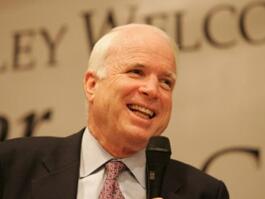Hillary's Brown Firewall: A Commentary by Robert D. Novak
LOS ANGELES -- Sen. Hillary Clinton is relying on the big Latino vote as her firewall to prevent losing the California Democratic primary Feb. 5, the most important of 22 states contested on Mega Tuesday. But that reliance, say both pro-Clinton and anti-Clinton Democrats, is fraught with peril for the Democratic Party's coalition by threatening to alienate its essential African-American component.



